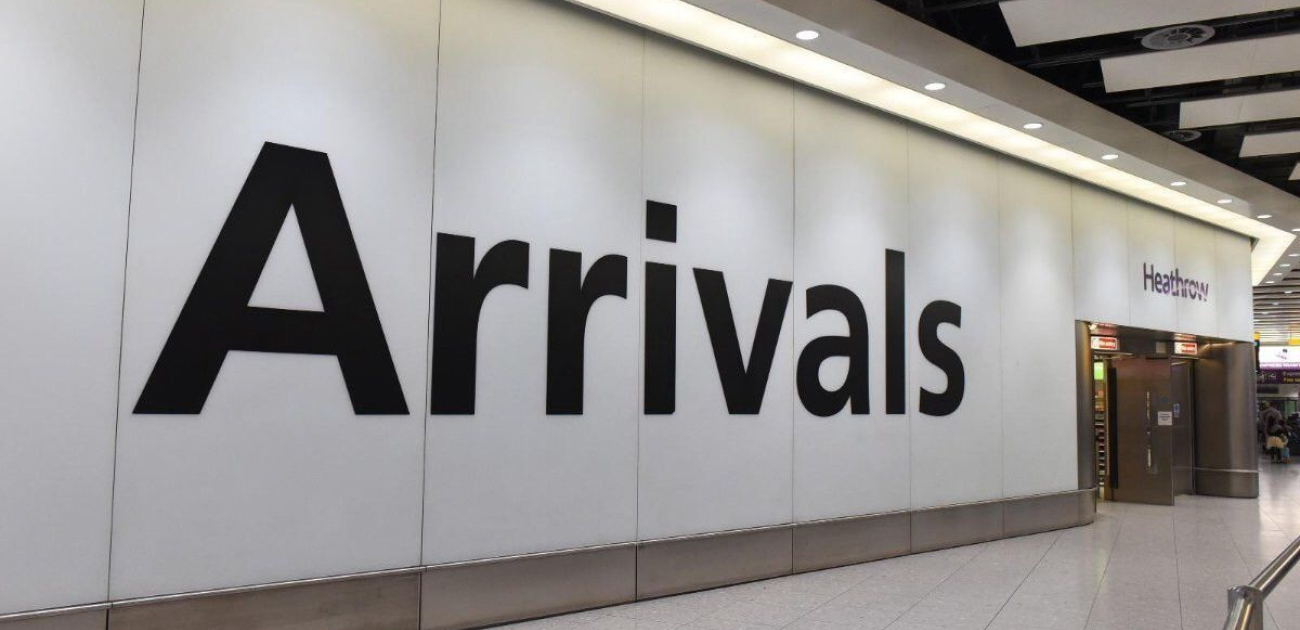Possible ‘No Deal’ Brexit Scenario? UK Government Must Welcome Overseas Entrepreneurs
An increasing number of commentators and politicians are predicting the UK will leave the European Union without reaching a trade deal in the Brexit negotiations.
Odds on a ‘No Deal’ scenario have recently been put at 50:50 by the Danish Finance Minister, Kristian Jensen and the Latvian Foreign Minister, Edgars Rinkevics, warned there was ‘ a very considerable risk’ of a no deal scenario. The UK Foreign Secretary, Jeremy Hunt, has publicly conceded that ‘No Deal’ is now a possibility and the Prime Minister, Theresa May, echoed this possibility by announcing last month that technical notifications are to be published setting out what businesses need to do in a no-deal scenario.
If the UK were indeed to leave the EU with no deal in place, it would bring in to sharp focus the need for us to strike independent, international trade deals with an urgency the UK has never had to demonstrate in the past. Some would say our membership of the EU, and specifically the Single Market, has dulled our entrepreneurial zeal. If this is correct, now would certainly be the time to find that zeal so we may develop meaningful trade relationships with new global partners.
However, connecting independently with economies outside of the comfort (or restrictions) of the EU Single Market must surely encourage the government to be more receptive to the many positives those economies can offer the UK. To be truly entrepreneurial the UK must adopt a more welcoming attitude to entrepreneurs and wealth creators who wish to do business in the UK. It cannot be a one-way street – our future trade partners will need to be assured their business people will be welcome in the UK.
One of the ways the UK government can approach this is to remove some of the more egregious obstacles entrepreneurs and wealth creators face when attempting to relocate to the UK through the Immigration system.
Responsible advocates of change do not suggest wholesale reform of UK immigration law, as such a thing is not necessary. Nor is it suggested we return to the 1990’s and 2000’s when immigration rose to unprecedented levels for reasons that some believe were motivated by political expediency.
Brightest and the Best
What we need instead is a firm commitment from the government that it will be true to the laudable ideal of attracting the ‘Brightest and the Best’ to the UK – people who can add value and create jobs and opportunities for the UK economy. However, in doing so, the government must ensure these ideals truly percolate down to front- line Entry Clearance Officers and Home Office caseworkers who, all too often, appear not to be guided by such principles. Many in the immigration law community believe that the ideal of the ‘Brightest and the Best’ was either never really adopted or, if it was, fell victim to poor quality, unnecessarily harsh decision- making. Such poor quality decisions (possibly set against the backdrop of Theresa May’s ‘hostile environment’ for immigrants?) have arguably led to a snuffing out of entrepreneurial activity that could, and should, have been allowed to flourish in the UK
In UK Immigration law there is one particular category of the Immigration Rules where much more can be done to foster entrepreneurship at the start of this new economic dawn – it is the Tier 1 Entrepreneur visa.
Tier 1 Entrepreneur
This visa is designed to enable entrepreneurs to come to the UK in order to establish or join a business. They need to invest a minimum of £200,000 and their investment must create at least two, full-time jobs for UK settled workers.
If properly administered, applicants with the required £200,000 and a reasonable, viable business proposition should be admitted to the UK to pursue their business activities. However, the reality for most applicants, especially from China (the World’s second most powerful economy and an important future trading partner) is that many applicants are subject to interviews that are sometimes barely worthy of the word, but instead are more akin to ‘interrogations’, designed to expose the slightest weakness in the business plan. The applications are then refused on the grounds that the applicants are not ‘genuine’ (the ‘Genuineness Test’).
Most immigration lawyers will have examples of these overzealous interviews, where it is difficult to resist the conclusion that the Entry Clearance Officer’s motivation appears more to do with catching out the applicant than testing the reasonable viability of the business plan.
Indeed, some of the decisions have been so bizarre as to render such conclusions irresistible. Personally, one of most depressing examples I ever saw concerned an applicant whose application was refused because he failed to stipulate in his financial projections how much Council Tax he would pay in the UK! No account was made of the fact that the applicant knew he would be liable for UK local taxes or that he had made generous provision for them – the simple fact that he could not put a figure on his prospective Council Tax liability sealed his fate. Such a decision cost the UK a perfectly viable business and its loss was Canada’s gain (where I believe he went).
Whilst Entry Clearance Officers must exercise a reasonable degree of scrutiny of Tier 1 Entrepreneurapplications, the emphasis must always be on them acting reasonably and proportionately. To do otherwise is to risk the UK losing out on perfectly able entrepreneurs and their ideas, vision, energy and funds. We also run the risk of appearing as hypocrites to our trading partners because, in one breath, we will be declaring our commitment to them as honourable trading partners, but under our breath we will be muttering the words ‘… but please do not send your people to do business in our country as we think most of them are bogus’. It is an indefensible position to adopt and we should not treat our future trading partners in such a way.
New Dawn for Entrepreneurs
Whether we enter this new economic dawn with a Deal or No Deal, the UK has a perfect opportunity to truly embrace the spirit of entrepreneurship and engage as never before with the global economy. But we must do so in a fair and equitable way that does not confuse our partners with mixed messages of wanting, but not wanting them.
Immigration laws and processes can be made fit for purpose, but such laws and processes must be enabling, not disabling. Entrepreneurs who seek entry to the UK should not be expected to prove the viability of every aspect of their business proposal to the highest, most exacting standard. I would suggest that if most new UK companies were subject to the same degree of scrutiny they too would not be seen as ‘genuine’. However, businesses are rarely perfect at their inception and often only by weathering setbacks and learning from mistakes do they begin to develop. Overseas entrepreneurs should be afforded no less an opportunity to prove themselves.
Conclusion
I cannot conclude without making a plea for the re-introduction of ‘appeals’ as the meaningful, independent way of challenging refusals, instead of what we currently have, which is the much derided Administrative Review. Many believe the Administrative Review has done little to promote the integrity of the immigration system, given first the restrictive definition of what constitutes a ‘case-working error’ (the single basis on which an Administrative Review can be requested) and secondly the frankly unsettling concept of government officials reviewing their own decisions. By its very nature the system lacks the independence and judicial scrutiny necessary to consider whether a decision is wrong and should be overturned.
I hope the UK Government seizes this opportunity to embrace entrepreneurship; removes the unreasonable obstacles to Tier 1 Entrepreneur migrants relocating to the UK and reintroduce independent appeals for the judicial oversight necessary to challenge unfair refusals
Do you want more information?
 Charles Green
Charles GreenCharles began his immigration career in the mid-1990’s when he joined an independent organisation in London offering legal advice and general representation to asylum seekers and refugees. In this capacity he presented in excess of 1,000 appeals before the Immigration Tribunal, with a success rate considerably higher than the sector average. He also managed a team of appeals advocates.
